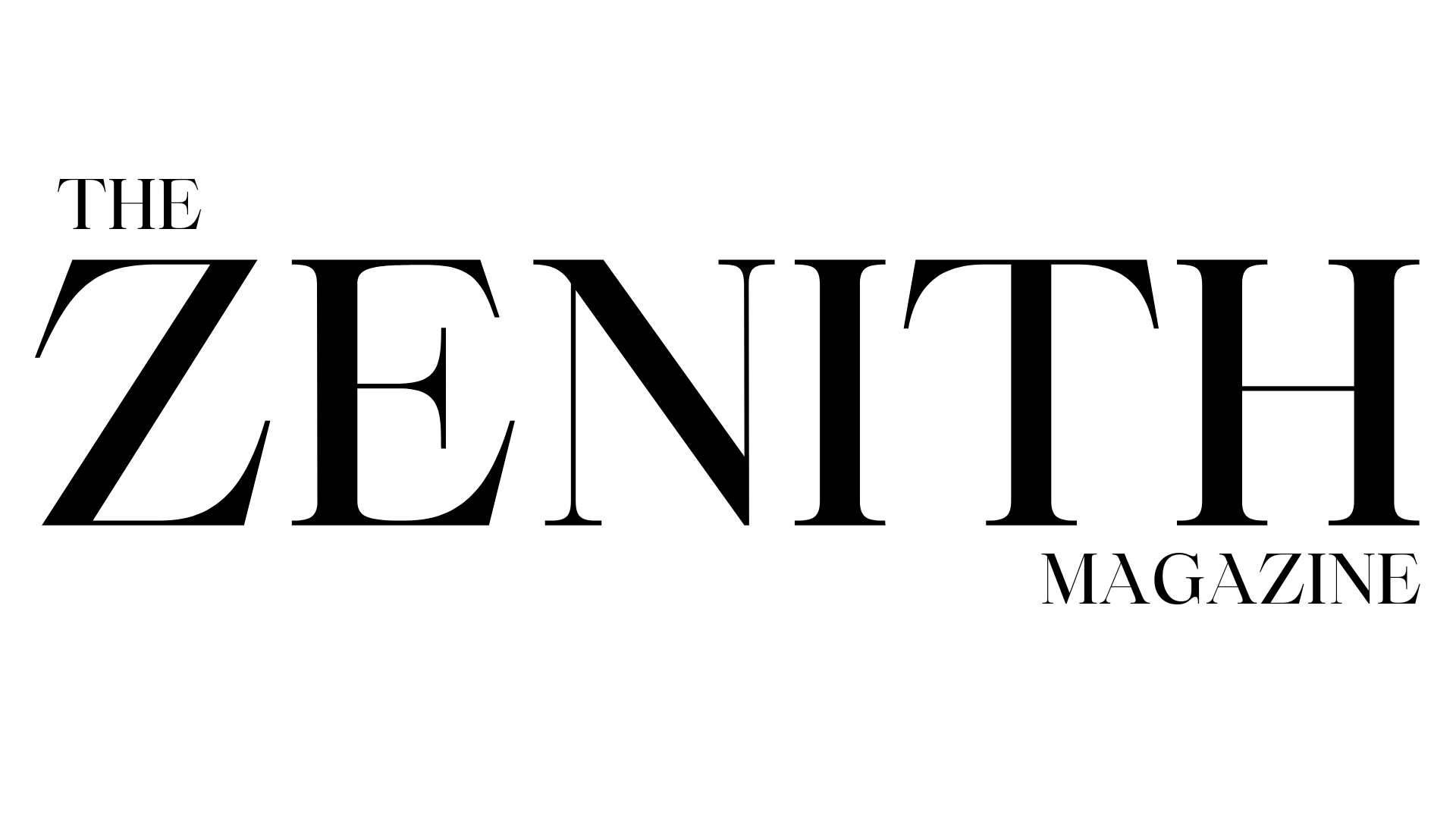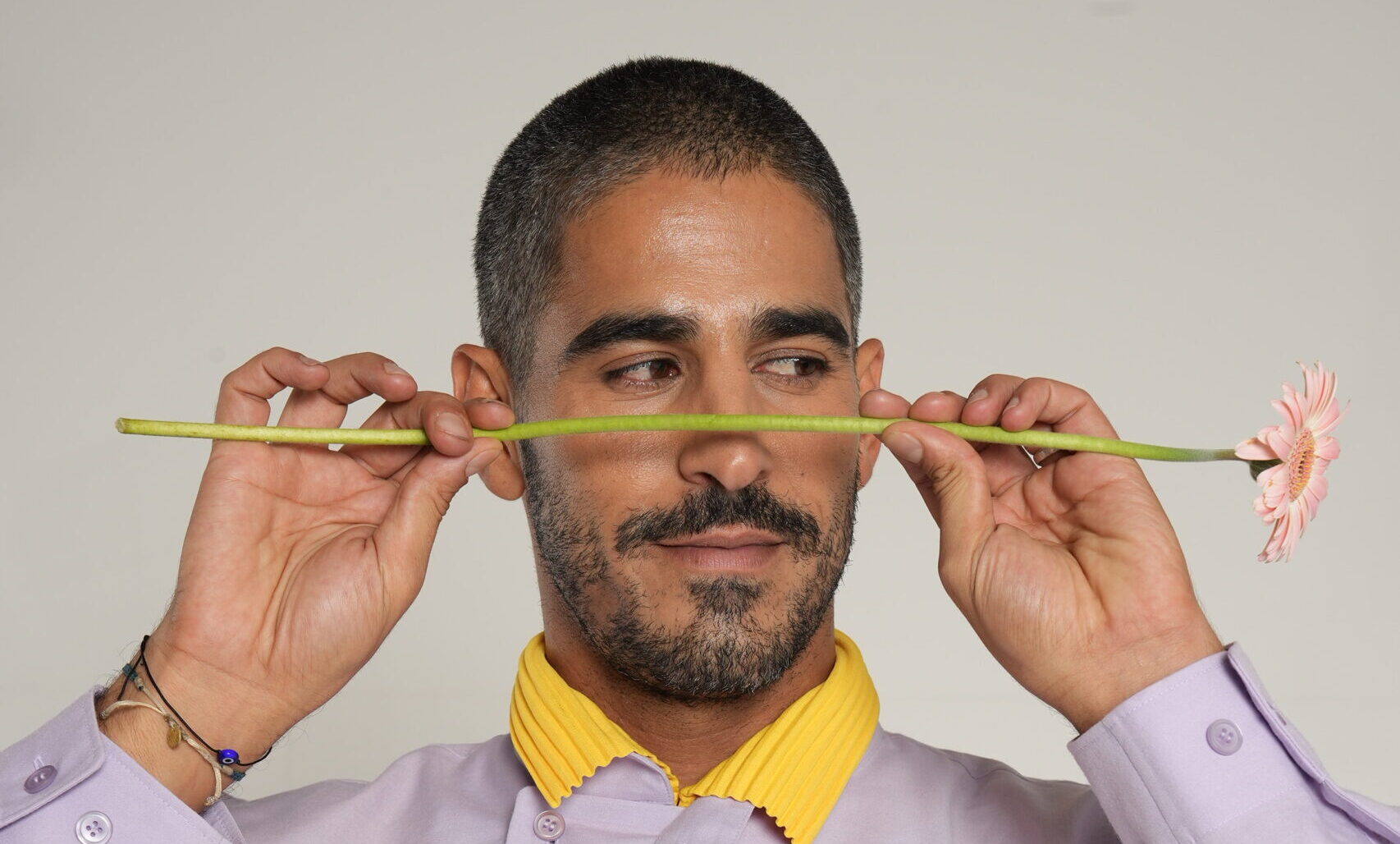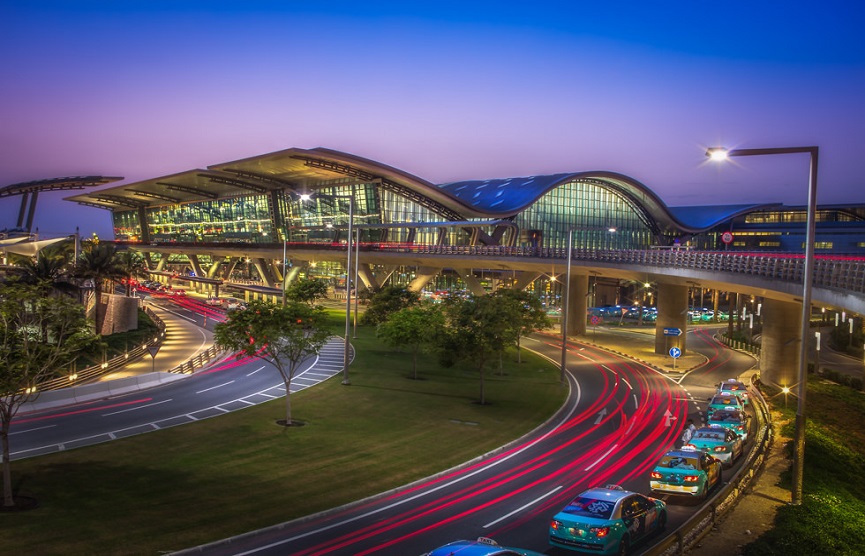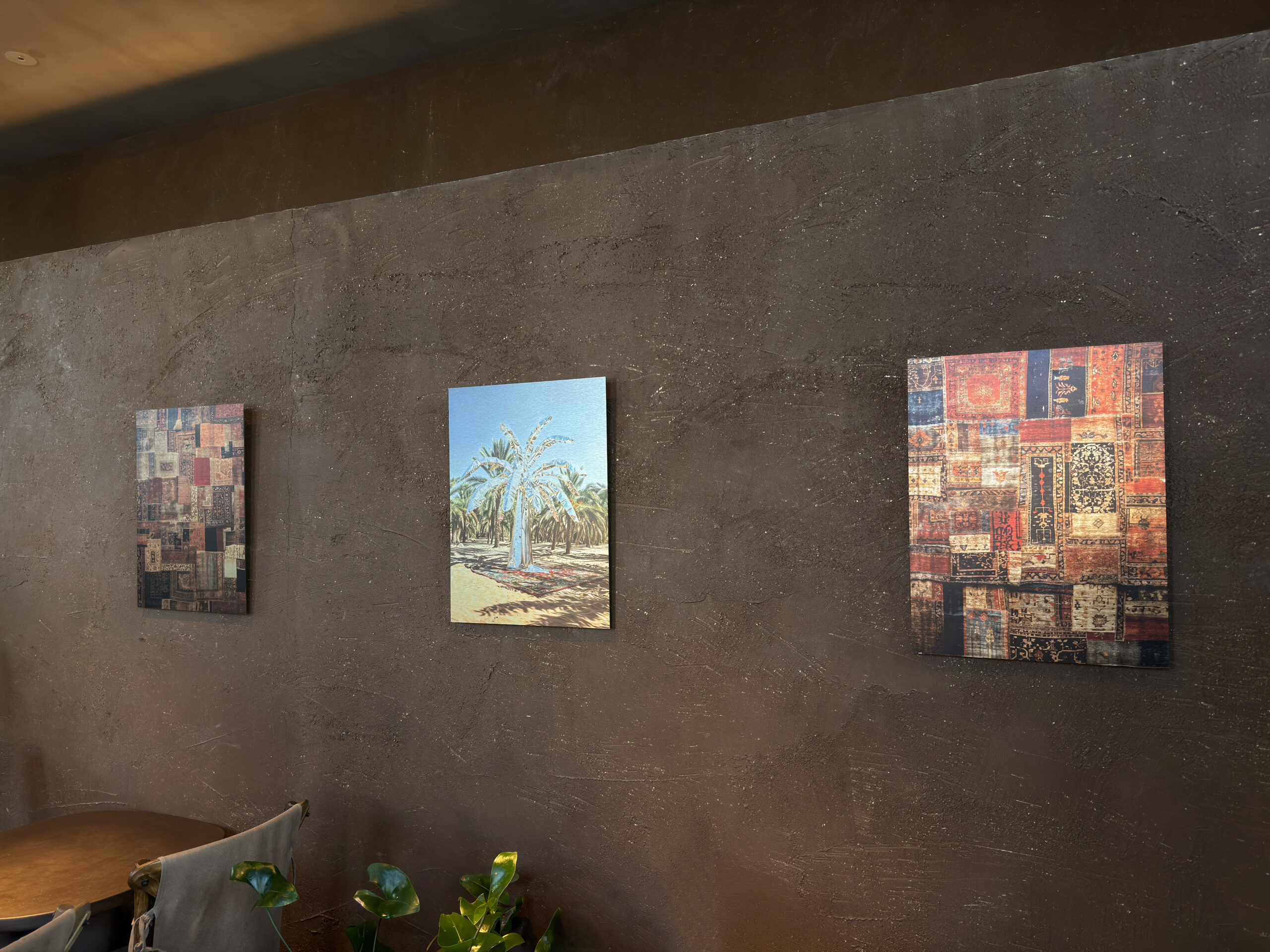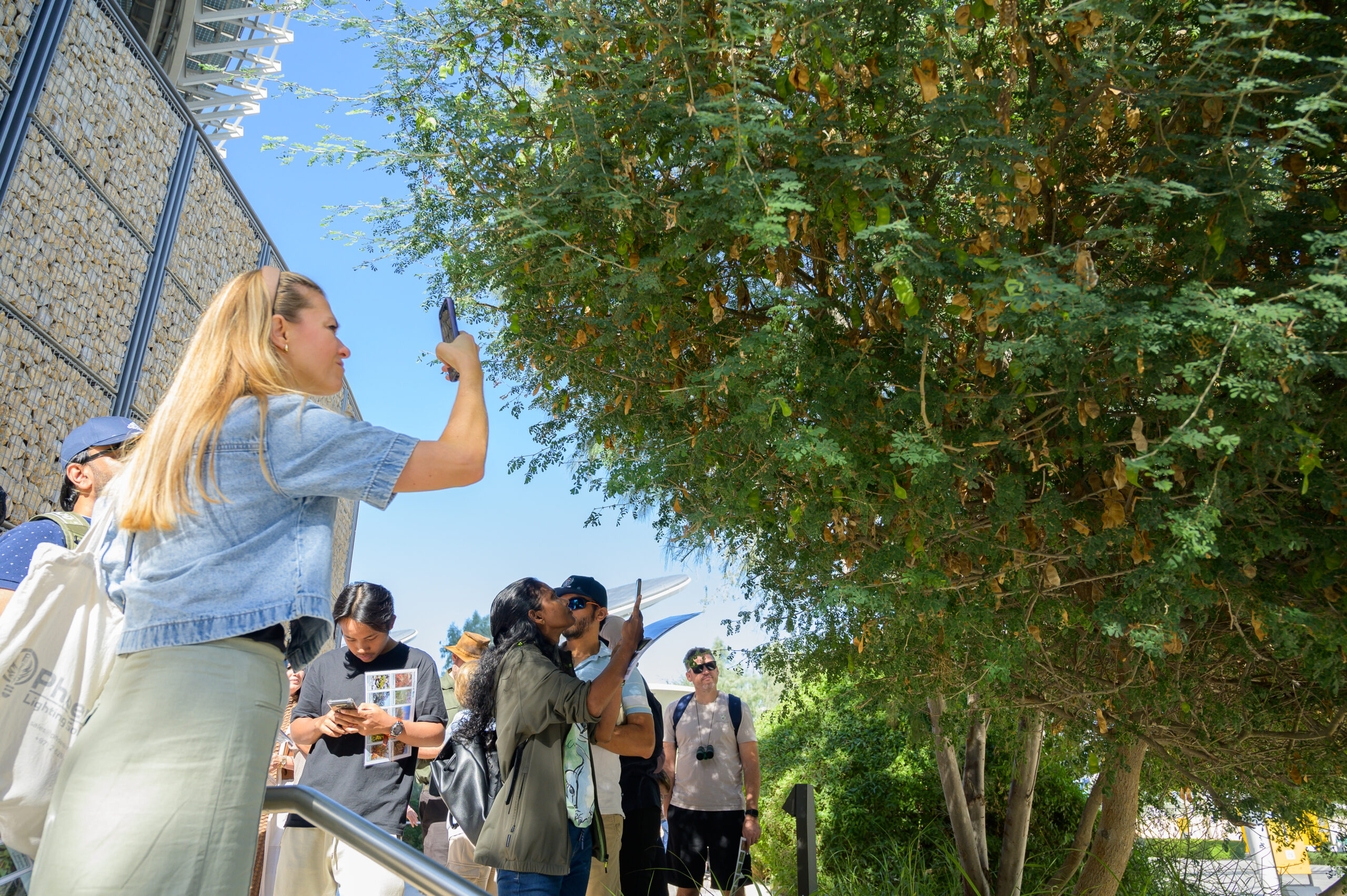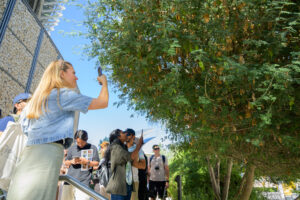I’ll admit it—I’m a fan. Like many, I first came across Ahmed’s work through his social media, where his voice has a way of cutting through the noise. His posts are sharp, unapologetic, and often challenge the narratives fed to us by the mainstream media. So, when the opportunity arose to sit down with the man behind the tweets and impassioned videos, I couldn’t pass it up. Fresh off receiving the Zenith Award as “Man of the Year,” Ahmed exudes a quiet intensity, each word carefully considered, as if he’s still weighing the impact even as he speaks.
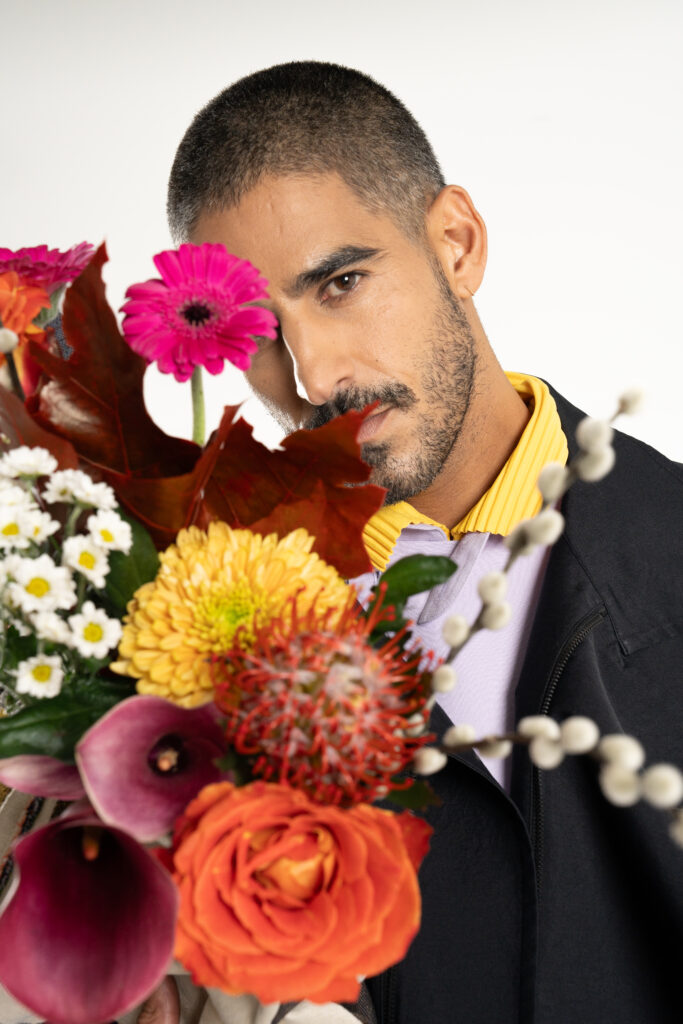
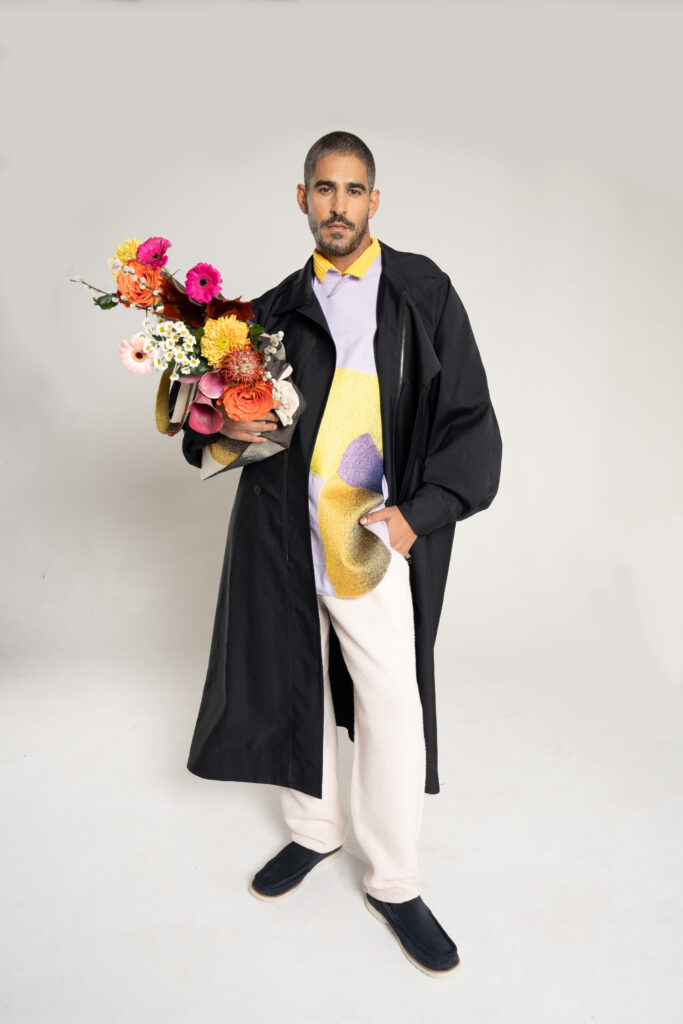
Wearing Issey Miyake
“It is humbling,” he begins when asked how it feels to receive such a prestigious recognition. “My career has largely been driven by humanising the dehumanised and amplifying the voices of the most marginalised amongst us. And to share stories that remind us how much more we have in common than what separates us.” There’s a modesty in his tone, a sense that the award, while meaningful, serves more as a checkpoint than a destination in his journey to shine a light on the uncomfortable truths that too often go ignored.
For Ahmed, this recognition is not about the accolade itself but about the work it represents—the stories that need telling and the voices that need amplifying. His path hasn’t been without its hurdles, though. He recalls some of the toughest moments in his career, battles with censorship, and attempts to silence both him and the communities he seeks to uplift. “One of the most challenging things I’ve faced is efforts to censor or silence, and also efforts to dehumanise me or the people that I report on,” he says. For Ahmed, overcoming these obstacles often involves stepping away from the chaos and grounding himself in what truly matters. “The way I overcome this is by taking time away from the noise and drama and reflecting on what is important to me. Usually, I rely on my intuition to inform how I should proceed.”
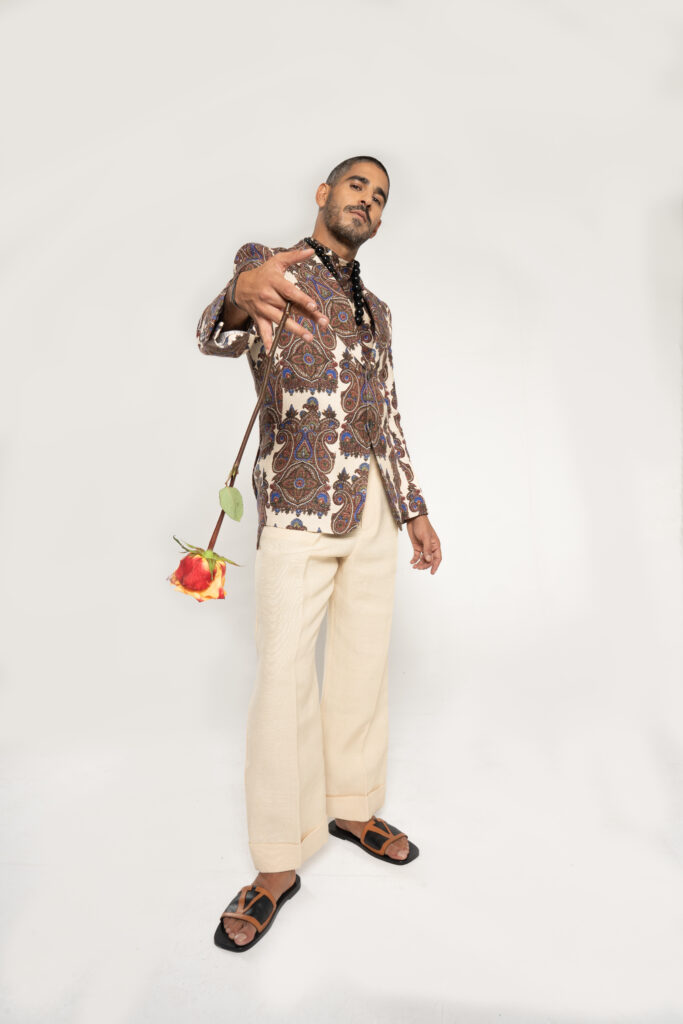
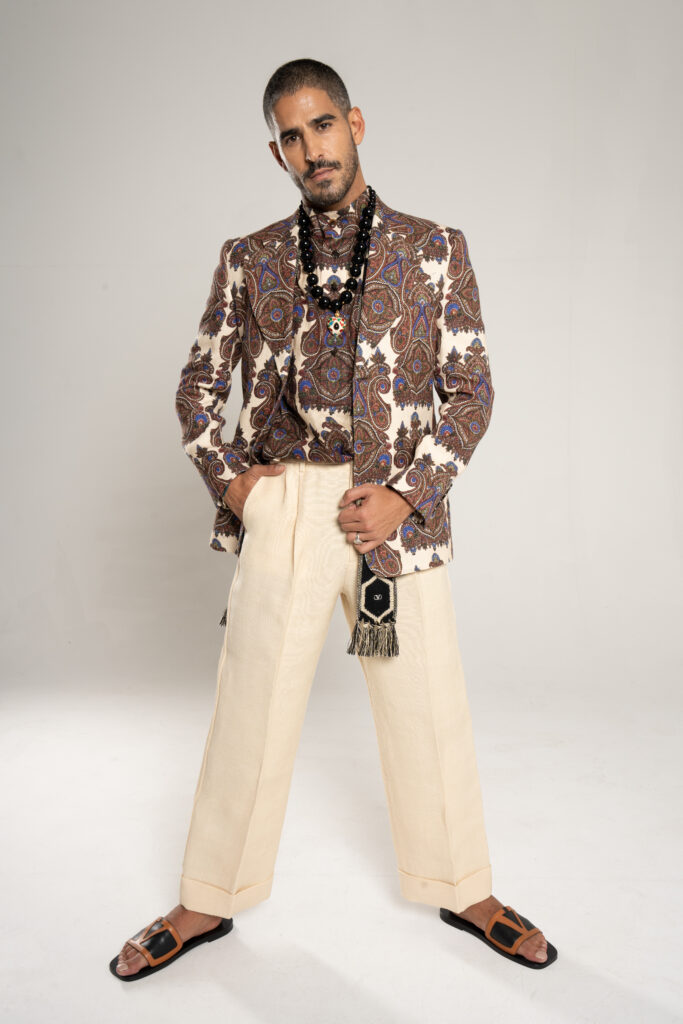
Wearing Valentino
Ahmed’s voice resonates not because he seeks to be heard, but because he embodies an unyielding commitment to truth and integrity. His idea of success diverges from society’s conventional measures. He cites Maya Angelou’s definition, “Success is liking yourself, liking what you do, and liking how you do it,” as his guiding principle. In a world where wealth and power often stand in for success, Ahmed’s approach is refreshing. “I understand why many associate success with financial wealth or power, but in reality, if you’re unhappy or unhealthy, can you really call yourself successful?” It’s a question that he poses to all of us, as if inviting a collective reflection on what we value.
It’s this authenticity that drives Ahmed’s engagement with social media, which he views as both a tool for change and a battleground. “Social media is a double-edged sword,” he explains. “It is undeniable that platforms like Telegram, TikTok, Instagram, or X are taking centre stage in shaping public opinion. I knew immediately after Oct 7, from my 15 years working in media, that the mainstream media was going to misinform the public and not reflect the reality on the ground, let alone the context of Oct 7 and Israel’s genocide.” His use of social media isn’t just about broadcasting his views; it’s about countering misinformation and shifting narratives that have long been controlled by the powerful.
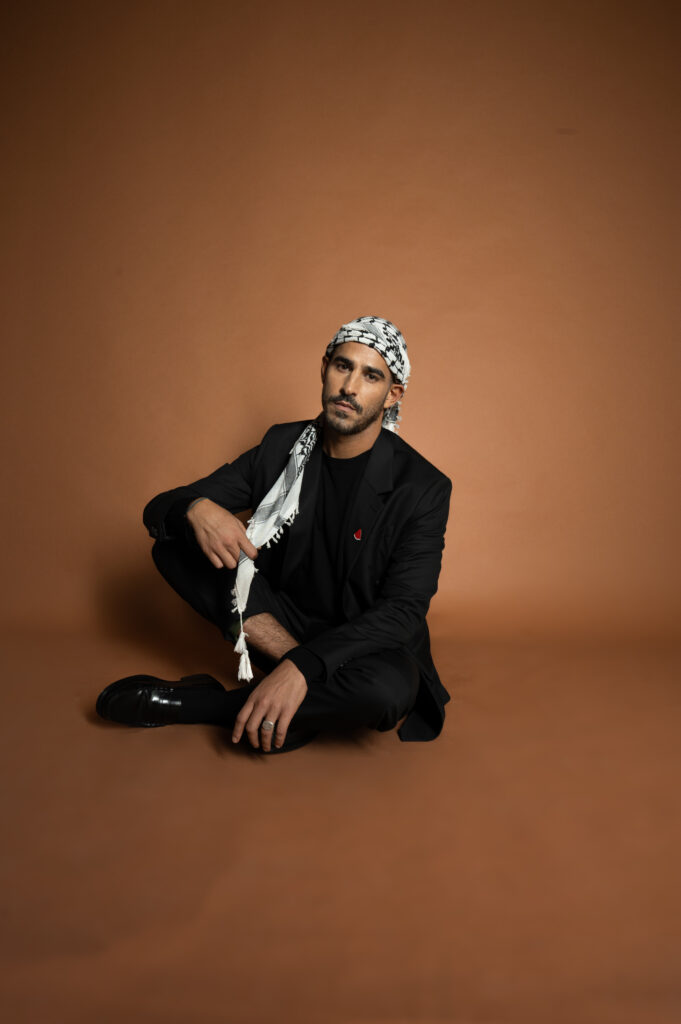
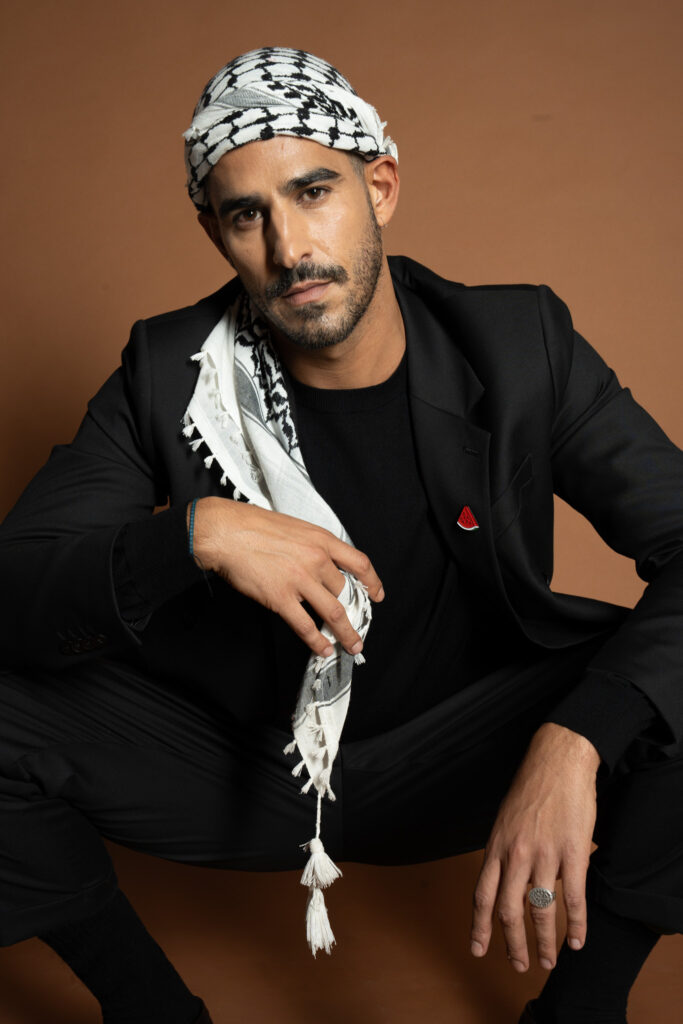
Wearing Celine
Ahmed is particularly struck by how social media exposes the disconnect between “establishment media, establishment politicians, and the actual people and public, in any country.” However, he’s acutely aware that this exposure comes with pushback. “As the use and proliferation of social media grows and evolves, so will the attempts to crack down on content and narratives on social media that challenge those in power,” he warns. His presence on these platforms is a form of activism, aimed at challenging conventional wisdom and calling out misinformation, especially surrounding Israel’s occupation of Palestine. “I use social media less for personal expression now and more as a form of public service. The stakes are high, and given the dereliction of duty by many mainstream journalists, I feel a responsibility to provide an alternative voice.”
The battle for truth is perhaps most evident in his work covering Palestine, an issue close to his heart. “To witness a live-streamed genocide so many decades after my parents and grandparents were forced to flee Israel’s ethnic cleansing of Palestine—it’s devastating. But it’s also motivating,” he says, his voice tinged with determination. For Ahmed, hope is found in the resilience of the Palestinian people. “What keeps me going is seeing how Palestinians continue to resist through creativity, art, and a million other ways. When you witness people enduring so much and still holding onto their humanity, it gives you strength.”
Yet, his frustration is palpable when discussing the increasing restrictions on freedom of speech. “To call what Israel and its allies are doing to freedom of speech at this moment alarming and dangerous is an understatement,” he says. He describes a pattern of suppression that extends beyond media censorship to include the criminalization of dissent across the Western world. “The hypocrisy and double standards in Western media are glaring. In Germany, much of Europe, and on U.S. college campuses, we see the criminalization of dissent and the silencing of voices in academia and the arts. It’s frightful and ominous.”
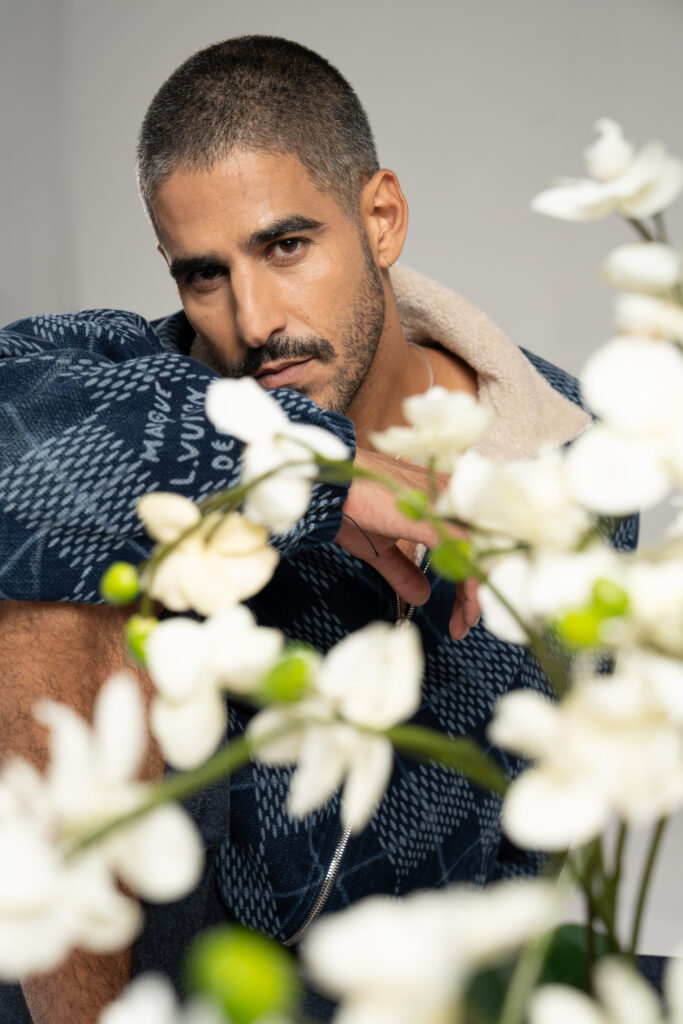
Wearing Louis Vuitton
Despite these challenges, Ahmed’s resolve is unyielding. He finds a sense of purpose in advocating for all marginalised communities, not just those in Palestine. “Throughout my life, I was always aware that given my relative privilege, I would not shy away from amplifying the voices of the oppressed, whether that’s Palestinians, Puerto Ricans, or any other misrepresented group,” he says. This perspective has guided his career and his activism, even in the face of personal and professional risks.
For aspiring journalists who want to tackle sensitive topics, Ahmed’s advice is clear and hard-won. “Read. Know your stuff. Cultivate primary sources. If mainstream channels won’t publish your work, there are plenty of independent outlets that will. But be prepared to face risks.” He stresses the importance of understanding your motivations and the audience you seek to reach. “If your intentions are clear and you stay true to your convictions, you’ll find your way.”
When asked how he would like to be remembered, Ahmed’s response is disarmingly simple. “Being true to myself. Being kind. And maybe, not taking life, or myself too seriously,” he says with a chuckle. “In short, I’d love to be remembered for bringing joy to the people I’ve crossed paths with.”
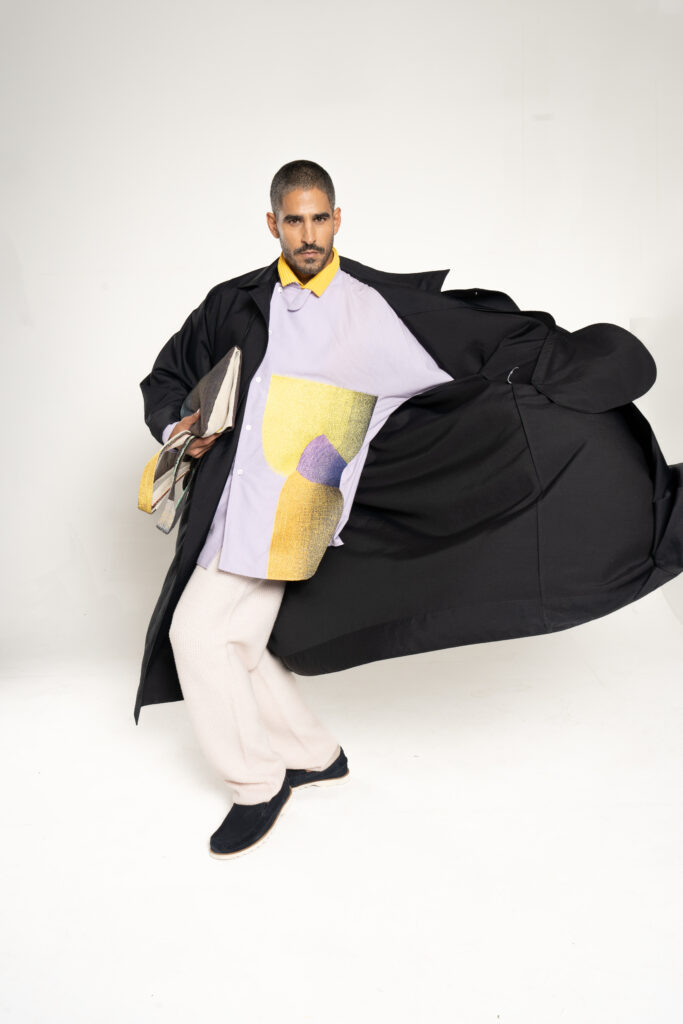
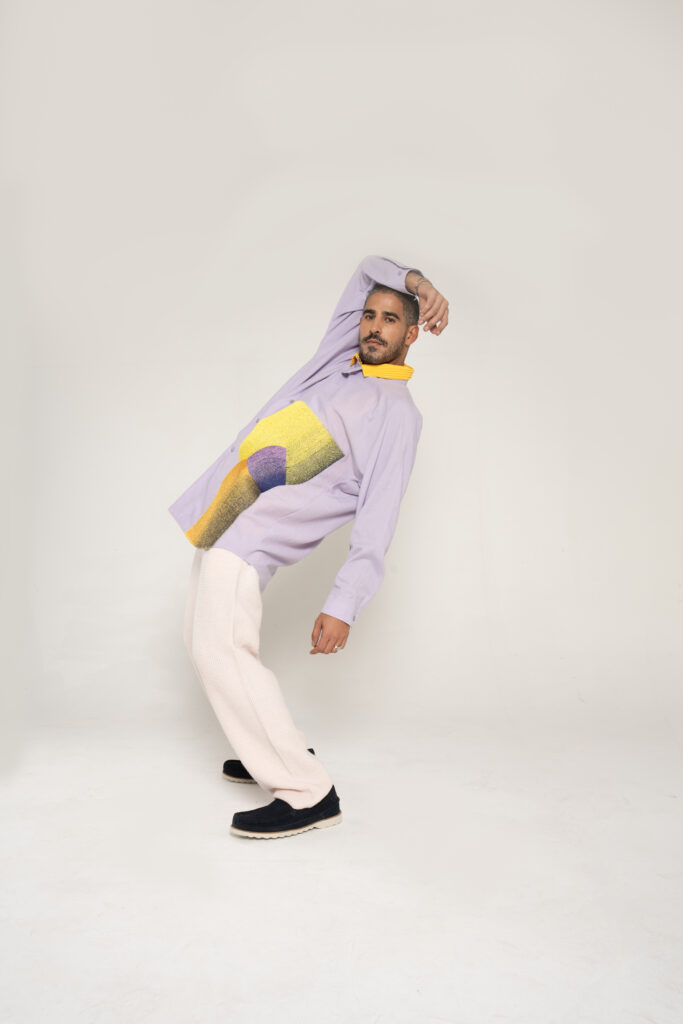
Wearing Issey Miyake
Looking forward, Ahmed is embracing new avenues of storytelling, including film, music, and even comedy. “During COVID and since then, I’ve eagerly wanted to explore new modalities of storytelling,” he shares. “I’ve done a few films, including one feature I’m particularly excited about that is coming out soon. I’m hoping to let go of the idea that to be impactful I have to be serious. It’s been a beautiful journey, studying improv, acting, and learning from musicians.” He’s also developing a travel show and exploring satirical storytelling, aiming to push boundaries in ways that are accessible, entertaining, and enlightening.
“Let’s see what sticks,” he says with a grin. For Ahmed, the journey isn’t just about telling stories; it’s about reshaping the way stories are told, creating space for voices that need to be heard, and remaining unflinchingly true to himself along the way.
Stylist: Tyra Maalow
Makeup: Joggy Kang
DOP: Essay Visuals
Photographer: Kawa
Production: Bilal Muhammad
Florals/Set design: G.Florals
